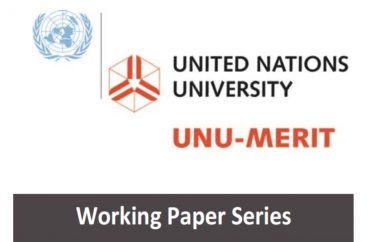Working Papers
New Working Paper: Glass ceiling effect in urban China: Wage inequality of rural-urban migrants during 2002-2007
by Z. Qu & Z. Zhao . The paper studies the levels and changes in wage inequality among Chinese rural-urban migrants during 2002-2007. Using data from two waves of national household surveys, we find that wage inequality among migrants decreas
Read MoreDecember 12, 2016
Comments are off
New Working Paper: “Post-Enlargement Migration and the Great Recession in the E(M)U: Lessons and policy implications”
by M. Kahanec & K. Zimmermann This paper summarises key results from our research about post-enlargement mobility in the EU. We clarify its scope, composition and effects; labour market situation of mobile workers; the role of labour mobility as a vehicle of economic stabilisation; as well as
Read MoreDecember 02, 2016
Comments are off
New Working Paper “Towards a new European refugee policy that works”
by Amelie F. Constant and Klaus F. Zimmermann . While Europe feels inundated by the 2015 refugee waves, the policy responses of the European Union and its member countries exhibit signs of helplessness. The Dublin system assigning responsibility to the country of first-entry has failed. Identifyi
Read MoreNovember 02, 2016
Comments are off
News
Journal of Population Economics climbs Scopus CiteScore ranking
Unlike impact factors, CiteScore measures the contributions of journals with a broader coverage and more long-term (4 years) basis. The Journal of Population Economics has substantially climbed the CiteScore rankings in the past year, moving from a score of 3.9 in 2020 to 6.5 in 2021!
Read MoreJune 20, 2022
Comments are off
Register for 2 upcoming JOPE workshops on abortion issues
Abortion issues are again on the agenda in many societies around the globe. Academic research can inform the public debate. The Journal of Population Economics (JOPE) has recently published several articles that can inform the ongoing abortion debate, which will be discussed in two wo
Read MoreMay 30, 2022
Comments are off
Journal of Population Economics “Meet the Author” workshop series recap
Over the last years, the Journal of Population Economics has expanded its online activities to ensure that the Journal community can remain connected despite the many changes COVID-19 has brought to our lives. For example, several online events have highlighted the new insights genera
Read MoreMay 10, 2022
Comments are off
Journal of Population Economics
The first Journal of Population Economics issue of 2022 is out!
Issue 35(1) of 2022 has been published. This issue of the Journal of Population Economics features the lead article “Cohort at risk: long-term consequences of conflict for child school achievement” by Hendrik Jürges, Luca Stella, Sameh Hallaq, and Alexandra Schwarz–w
Read MoreDecember 22, 2021
Comments are off
Latest Journal of Population Economics with focus on COVID-19 is now published
Since the emergence of the COVID-19 pandemic, scientists from different disciplines and regions have collaborated in understanding the origins, spread, and consequences of COVID-19. The latest issue of the Journal of Population Economics 34 (4) is dedicated to emerging evidence on COV
Read MoreAugust 05, 2021
Comments are off
Journal of Population Economics webinar on 27 May, 2021 (16:00-18:00 CEST)
The next Journal of Population Economics webinar will be held Thursday, 27 May from 16:00-18:00 CEST. This webinar highlights some of the research published in issue 34(3), which can be read online here. Attendance to the Zoom webinar is open via this link: https://maastrichtuniversit
Read MoreMay 25, 2021
Comments are off
© 2024 United Nations University - Maastricht Economic and Social Research Institute on Innovation and Technology





